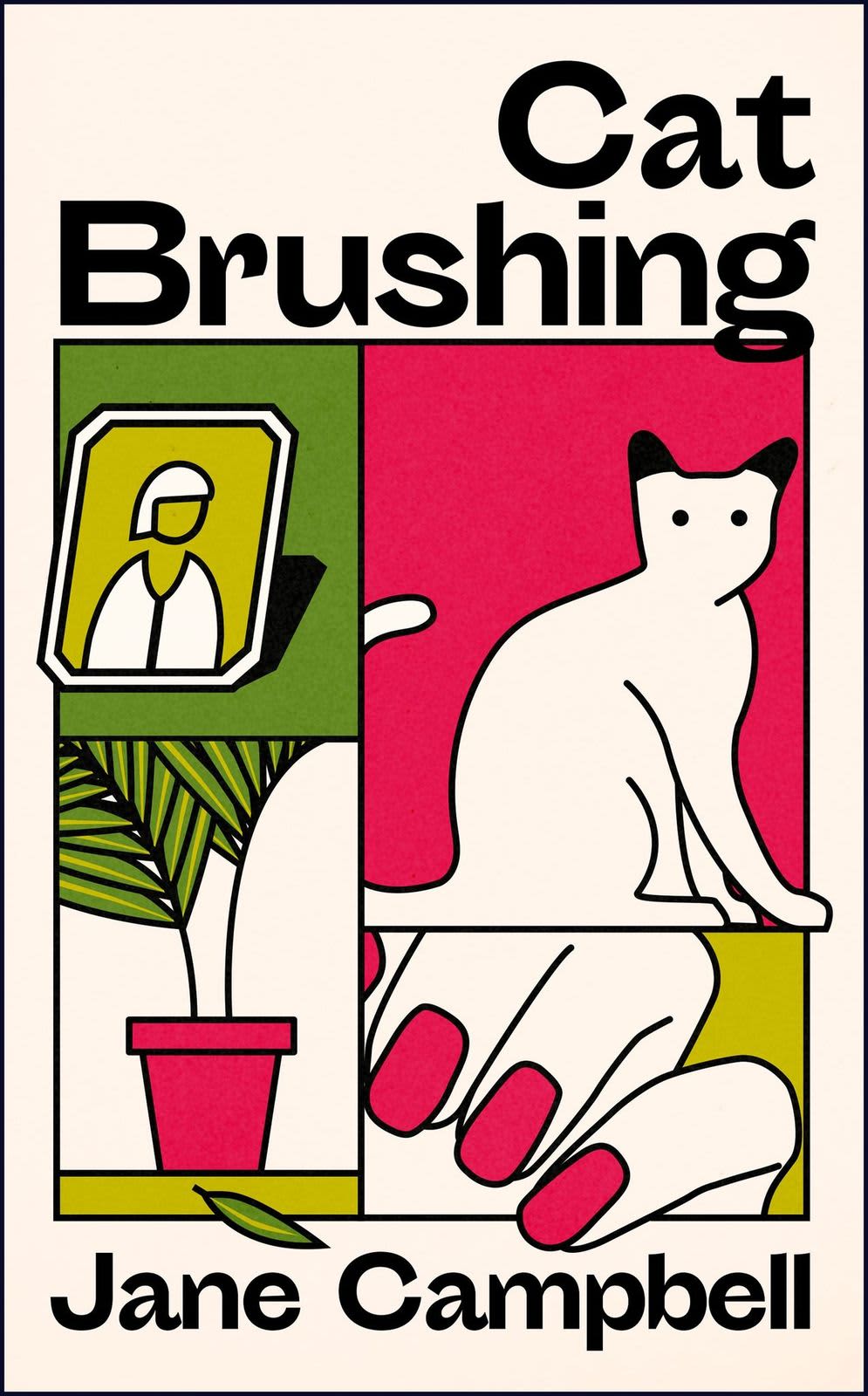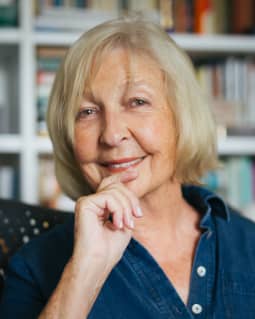Born in the Wirral, brought up in Zambia and South Africa before moving to Bermuda and now Oxford-based, Jane Campbell is the author of Cat Brushing.
This collection of short stories features the lives of older women; a subject with which Jane, who was 80 when this – her debut book – was published, is familiar. Having spent her career working as a Group Analyst, the vignettes – glimpses into women’s inner lives – form a battle cry for recognition, compassion and respect.
Cat Brushing is your debut published work, but I understand you have been writing for some time. Did this also take the form of short stories?
Cat Brushing (the story) is the first short story I had ever written, although it is true that I have always been scribbling something. Poems, novellas, novels, ideas for stories etc.
What led to you to writing this collection?
I am now the age of the old women in the stories, and I felt angry during lockdown when all the media accounts of ‘the elderly’ or ‘the aged’ outlined how vulnerable and needy they were. There was something enormously dismissive and pejorative in the attitude of the media towards the elderly as always constituting a problem. Moreover, I wanted to give my heroines their own stories. In literature in general, old women are peripheral to the action, always someone’s mother, or grandmother, or aunt or nursemaid. These old women star – for better or worse – in their own stories.
How has a career in psychoanalysis informed your writing?
I see each of my heroines (I am using that term deliberately) as shaped by a past childhood and then by further formative influences (school, families, partners, etc) as they aged. Sometimes this is explicit and sometimes only inferred. I am always conscious of the backstory, in other words, and the fact that this old woman was once a child.
Is there any degree to which your work, or indeed your personal experiences, inspired the stories?
The settings of the stories are drawn from my personal experiences of different places and so are not fictional. However, the heroines are completely fictional – although I have used my experience as an old woman to measure the existential truth of them.
You have lived in various countries, where do you feel most at home?
A very important question. All writers are aliens, are they not, or outsiders? I feel most at home in Oxford but also yearn after the place I was born, Hoylake, while also craving the space and the turbulence of the Victoria Falls and the cloudscapes and coral sands of Bermuda.
People speak of older women becoming invisible. Do you think this is the case? I wonder if in part it is because as we age it becomes less essential to be ‘above the parapet’.
Well, this is an interesting variant on the old complaint that we are invisible. Certainly, I know no-one near my age who hungers after the sort of exposure that some younger generations pursue. However, I suspect what is meant is that, standing in a queue or waiting for service at a table, we just attract less notice.
It sometimes feels as if ‘the older woman’ has become the last acceptable target of disdain and blame. Does this feel true for you?
Yes, as I said about the media during lockdown. Moreover, I have often quoted a lecture that Dorothy Sayers gave in the 1930s titled Are Women Human? The title speaks for itself. I have asked ‘are old women human’… or are they a sub-species still with certain recognisably human traits but not to be considered fully human any longer.
So, are there any myths you are seeking to dispel?
Possibly the myth that old women are not really human beings any longer, who experience emotions of fear, hope, love, dread, hate, ambition, longing, grief just like everyone else. Dorothy Sayers refers to the Merchant of Venice: “If you prick us, do we not bleed”. Old women are imaginative, sensate, fearful creatures just like the rest of humanity.
Finally, what’s on your reading list?
Not many contemporary novels and, in fact, very few novels at all. I read poetry, nothing fancy, old favourites. I have started reading short stories now that I write them and am enormously impressed by Sylvia Townsend Warner. I devour articles in the London Review of Book and the New York Review of Books. The last book I dipped into was Rowan Williams on Dostoevsky: Language, Faith and Fiction. And I say, “dipped into” advisedly: I have a ragbag of a mind stuffed over decades with half-remembered quotations, images, ideas, phrases etc and many of them find a home in the stories.
Cat Brushing by Jane Campbell (riverrun, 2022) comes out in paperback on 22 June. quercusbooks.co.uk










